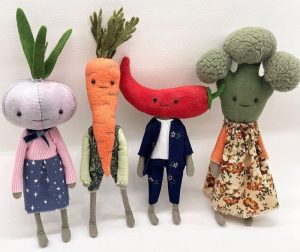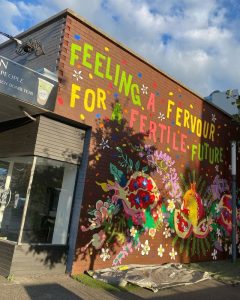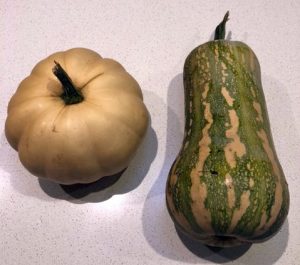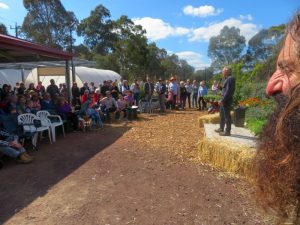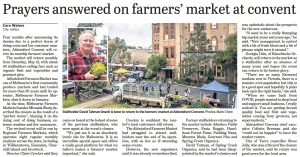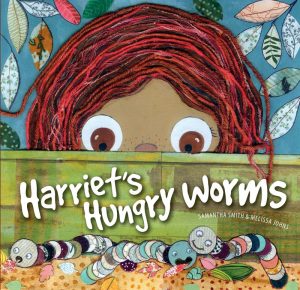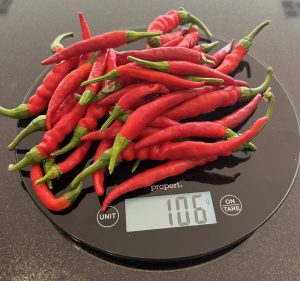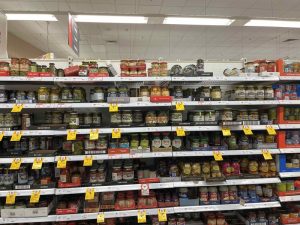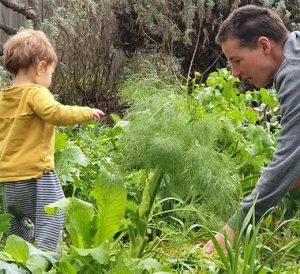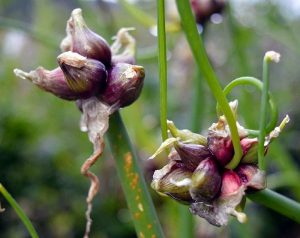Thanks to the people who have contributed to this week’s newsletter: Anne Shea, Fiona Parsons, Jennie Ramage, Megan Goodman, Rob Rees, Robin Gale-Baker and Susan Palmer.
Dealing with suckers (by Robin Gale-Baker)
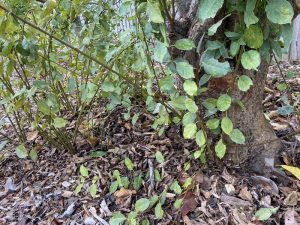
For the health of fruit trees, it is important to remove suckers at pruning time. Suckers are the shoots that grow from the rootstock beneath the graft on fruit trees. Most fruit trees are grafted, sometimes having several grafts on the one tree. The rootstock is a different variety of tree than the graft and will not produce the same fruit. The graft will appear as a bulge low down on the trunk – usually around 20cm from the ground.
There are four main reasons to remove suckers:
- Suckers detract from the vigour of the tree, reducing flowering and fruiting.
- Suckers can outgrow the main trunk and make it difficult to distinguish the trunk from the sucker(s).
- Suckers can overwhelm the tree, creating multiple unwanted trunks.
- Suckers are often thorny and pose a danger of injury when you are pruning including puncture wounds from brushing against them, removing them or stepping on pruned branches. Pruned branches should be collected and disposed of straight away as they can easily penetrate footwear or wheelbarrow or car tyres.
Sometimes suckers grow from the trunk and, at other times, they grow directly from the roots. To remove them from the trunk, it is important to make a clean cut, as close to the point they emerge as possible. To remove them from the roots, scrape back the soil and try to locate the root from which they are growing and cut at the junction between the root and sucker, then replace the soil.
Do not leave a stub. Stubs create branching which is the equivalent of a heading cut where multiple shoots emerge from a single cut.
The best time to prune suckers out is when they are young & thin and it is possible to get your secateurs ‘in’ – right next to the trunk or root. The bigger the sucker is in diameter, the harder this is to do and you may need to resort to using a pruning saw or choppers. Unlike pruning tree branches, it is often awkward to get a good angle on suckers because they are emerging from the ground or the trunk low down. They can also grow very close to the main trunk, if not right up against it.
The other thing to look for is suckers growing some way from the trunk. These will be suckers from the roots and must be removed.
Suckers must be dealt with annually but check every few months and remove any re-growth. Some trees may be relatively easy to keep sucker free while others are so vigorous that it’s a constant job.
After some debate, the farm gate at Joe’s Market Garden is remaining open
On 22nd May, ABC Melbourne reported that the farm gate at Joe’s Market Garden was to be closed, for the Winter at least (listen to their 10 minute podcast where, from the 5:46 minute mark, Cinnamon Evans, the CEO of CERES, who run Joe’s Market Garden, is interviewed about the subject). On the same day, the Broadsheet website reported the same thing.
On 25th May, however, CERES announced on Facebook that the farm gate would remain open over winter, but only on Saturday mornings. The market garden itself will remain operational 7 days per week and its produce will still be found in the CERES Fair Food veggie boxes.
It is not yet clear what the longer term future holds. As CERES said in their Facebook post above: “The market garden and farm gate have been operating at a significant financial loss. We need to make some changes.”
Want some spent ground coffee?
Fiona Parsons, from Reground, has written in to say that they are currently a bit short of gardeners to deliver their spent ground coffee to. They deliver everywhere in metro Melbourne and each delivery is about 1 tonne / 1 cubic metre of coffee. It is a free service and there is no cost to the gardener. Book your free delivery.
For those of you who don’t know, Reground is a social enterprise, based in Alphington, who collect spent ground coffee and chaff from cafes and businesses and deliver it to homes and community gardens around Melbourne and Geelong. Their objective is to keep it out of landfill and return it to the soil where, in their view, it belongs.
Some people are passionate advocates for using spent coffee grounds in their garden. For example, read Jian Liu’s article on our website, which also discusses how it should, and should not, be used.
 Every newsletter needs a good picture
Every newsletter needs a good picture
How many vegetables can you see in the photo right?
A poem
[From Jennie Ramage, who says: “I used to say this poem to young children, both my own and those in school kitchen garden groups that I ran. Now I just say it to the bees. Hint: extend the ‘zzz’ sounds.“]
“I’m busy busy busy” said the bee
“I shan’t be home for dinner or tea,
it takes me hourszzz and hourszzz
to visit all the flowerszzz”
We now have a total of 19 food-related poems by newsletter readers on our website.
Your weekly facts about earthworms
Bev Middleton, from Soil Week Australia: Worm castings, also known as worm poo, are very nutrient rich. They contain beneficial bacteria, enzymes, micronutrients (including iron, sulphur, magnesium, zinc, copper and calcium) and macronutrients (nitrogen, potassium and phosphorus).
Guy Palmer: The last book that Charles Darwin ever wrote was called The formation of vegetable mould through the action of worms, published in 1881. It is a very readable book about the impact of earthworms on the soil.
Changes in Eltham cafes
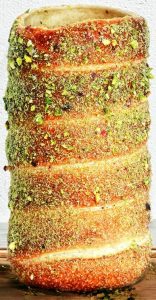 The Merika Cafe & Restaurant has open up. At 1425 Main Road (up the hill, behind the 7/11 petrol station). Open Wednesday to Sunday, 8am-3.30pm. As well as normal cafe fare, its menu features something called ‘chimneys’, both savoury and sweet, which are filled with whatever. For example, I (Guy) had a chimney filled with poached eggs, spinach, cheese and hollandaise sauce followed by another chimney covered with nutella and chocolate chips and filled with chocolate ice cream. Unusual and rather yum!
The Merika Cafe & Restaurant has open up. At 1425 Main Road (up the hill, behind the 7/11 petrol station). Open Wednesday to Sunday, 8am-3.30pm. As well as normal cafe fare, its menu features something called ‘chimneys’, both savoury and sweet, which are filled with whatever. For example, I (Guy) had a chimney filled with poached eggs, spinach, cheese and hollandaise sauce followed by another chimney covered with nutella and chocolate chips and filled with chocolate ice cream. Unusual and rather yum!
The Chocolate Lemon Cafe has moved to Warrandyte (down by the river near the children’s playground).
Some new articles from Angelo Eliades
Why honey never spoils. [Hint: because if contains zero water, is acidic and has some anti-bacterial agents.]
Can honey be used for rooting plant cuttings?. [HInt: the answer is ‘yes’.]
Some suggested viewing
Susan Palmer suggests that you watch the following videos about how to make mini cakes shaped like animals: video 1, video 2, video 3, video 4 and video 5.
Meg’s garden this month (by Megan Goodman)
The top of my water heater is draped with lengths of drying borlotti beans that rattle in their casings and are nearly ready to be stored. Inside, the seeds are speckled pink. They can be used fresh and make great baked beans, but can also be dried for later use. Saving seed from beans (and peas) is simple. You leave them on the plant for as long as possible, until they start to dry, then harvest and place somewhere to dry out. In this weather, you can’t leave them on the plant too long as they will be affected by mildew. Don’t use them all in your winter cooking – make sure you save some seed to plant next season.
In between the showers, I have planted out more leafy greens and this season’s garlic. I have also pulled out the prolific nasturtium seedlings that have sprouted everywhere. If allowed to grow, they will take over the garden beds, smothering everything else. Once planted, it is unlikely that you will ever be without nasturtiums, although the newer varieties may revert over time to the more common orange flowers. Just leave your seedlings on the ground to break down or add them to your compost.
What veggie seeds to plant in June
Here is a list (see the June planting guide for more detail):
Broad beans
Coriander
Garlic
Lettuce
Mizuna
Mustard greens
Onion
Peas
Radish
The list is pretty short. It’s your last chance to plant broad beans and garlic, and arguably too late for them.
Making bread (by Anne Shea)
This unusual bread recipe uses some interesting techniques like extra yeast, a high moisture first kneading with warm water, and a cold start in the oven. All of which has two loaves of crusty white bread ready from mix to eating in a little over an hour. They cost less than $3 to make and this recipe has saved me many Saturday morning trips out for a nice loaf. It’s often easier and definitely cosier to stay in and warm up the house with the baking of bread. I can get hot bread and jam ready before my kids even get out of bed! The recipe was first published in Amy Dacyczyn’s now very-out-of-print The Frugal Gazette.
Ingredients
5-6 cups all-purpose flour (you can substitute whole wheat flour for 1 or 2 cups)
2 tablespoons dry yeast
2 tablespoons sugar
1 tablespoon salt
2 cups hot water (around 50degC)
1 tablespoon sesame or poppy seeds
Method
If you don’t have a food processor: Mix 4 cups of the flour with the yeast, sugar, and salt. Pour in hot water and beat 100 strokes, or three minutes with a mixer. Stir in the remaining flour until the dough is no longer sticky. Knead for 8 minutes.
If you have a food processor: Combine the dry ingredients in the processor bowl. Turn on the machine and slowly pour the water in the tube until the dough forms into a ball. Let the dough ball spin 20 times.
Place the dough in a greased bowl and cover with a damp towel. Let it rise for 15 minutes.
Punch down. Divide into two pieces. Shape into two round loaves and place on a baking sheet. Cut a cross ½ inch deep on top with a sharp knife. Brush with water and sprinkle with seeds.
Place on the middle shelf of a cold oven. Place a cake pan of hot water on the lowest shelf. Heat the oven to 200degC. Bake for 40-60 minutes until golden brown.
Which link was clicked most times in the last newsletter?
The most popular link in the last newsletter was Thanh Truong’s video about how to choose and cut pomegranates.
Regular activities over the coming week
Farmers’ and other food markets
- Friday: Community Grocer, Carlton.
- Saturday: Carlton and Coburg.
- Sunday: Alphington, Eltham and Heathmont.
- Tuesday: Community Grocer, Fitzroy.
- next Wednesday: Really Really Free Market (Coburg).
Food swaps
- Saturday: Bayswater North, Brunswick East, Carome Homestead (Mernda), Collingwood, Fitzroy, Heidelberg West, Pascoe Vale and Glenroy, Rosanna and Warrandyte.
- Sunday: Blackburn, Montmorency and Regent (Coburg).
Community gardens
- Thursday: Diamond Valley Library (Greensborough), Edible Hub (Hurstbridge), SEEDs (Brunswick) and Whittlesea.
- Friday: Reynard Street (Coburg) and West Brunswick.
- Saturday: Links (Lalor), Macleod and Thrive (Diamond Creek).
- Sunday: Bellfield, Fawkner Food Bowls, Northcote Community, Pentridge (Coburg) and Regent (Reservoir).
- Monday: SEEDs (Brunswick) and Whittlesea.
- Tuesday: Panton Hill and Watsonia Library.
- Next Wednesday: Bellfield, Eltham Neighbourhood House, Macleod, Newton Street (Reservoir), Span (Thornbury) and Sylvester Hive (Preston) .
Not (quite) local but interesting
All three events below are being organised by Cultivating Community and held at Burwood Brickworks Rooftop Farm.
How to save and germinate seeds; Monday, 5th June, 11am-12.30pm; $40 ($26 per hour); Burwood.
Learn how to create seed banks and about the germination process.
Recycled plant containers and propagating indoor plants; Friday, 16th June, 10-11.30am; $50 ($34 per hour); Burwood.
Learn what to do with those items you may think about throwing out and how they can be re-purposed for your indoor plants.
Bush tucker food for balconies; Tuesday, 27th June, 10-11am; $50 ($50 per hour); Burwood.
Relevant if you live in an apartment or have limited growing spaces.
Upcoming face-to-face events – not cooking
Soil management masterclass and field trip (2 sessions); Sunday, 4th June, 10am-2pm and Friday, 16th June, 10am-4pm; $359 ($36 per hour); Bundoora.
For aspiring farmers. The first day will equip you with the skills to assess soil conditions. Learn how to engage an agronomist effectively, interpret soil test results, and conduct practical field tests to assess soil qualities. The second day will be a field trip to explore the impact of soil type and context on site management. Discover how different soil conditions require tailored approaches and refine your skills in developing effective soil management plans. Facilitator: Agronomist Ian Mott. Organised by Farmer Incubator.
Introduction to soils workshop; Sunday, 4th June, 2.30-4.30pm; $47 ($24 per hour); Bundoora.
Agronomist Ian Mott will discuss: how to assess soil conditions; resources for conducting soil tests, what to test for (e.g. contamination, identifying hazards, fertility, suitability to particular crops) and where to do so; how to interpret and improve or amend soil conditions; and tools and resources for planning, management and further learning. Organised by Farmer Incubator.
Winter pruning and care of fruit trees with Robin Gale-Baker; Saturday, 10th June, 1-3pm; $15; Macleod.
Learn how to prune nectarines, peaches, plums, apples and quince trees and how to maintain these trees so that you will get disease-free fruit and healthy leaves in the summer. If you have sharp secateurs or loppers please bring them but, if not, you can use what they have in the tool library. Organised by Sustainable Macleod.
Shopping guide according to Aegean longevity cuisine; Sunday, 11th June, 10am-1pm; free; Doncaster.
Learn how to shop for healthy and proper ingredients. Explore the importance of understanding hidden preservatives in food, the impact of excessive sugar and salt consumption, and how to identify additives on food labels. Start by walking through some shops and then convening for a more in-depth discussion. Finally, learn some techniques specific to Aegean longevity cuisine.
Winter pruning and care of fruit trees with Robin Gale-Baker; Saturday, 17th June, 1-3pm; $15; Macleod.
Learn how to prune nectarines, peaches, plums, apples and quince trees and how to maintain these trees so that you will get disease-free fruit and healthy leaves in the summer. If you have sharp secateurs or loppers please bring them but, if not, you can use what they have in the tool library. Organised by Sustainable Macleod.
Wild mushroom foraging and fermentation for beginners; Saturday, 8th July, 10am-3pm; $180 ($60 per hour); Mount Evelyn.
Learn how to identify wild mushrooms and gather them safely. Take a guided walk to search for mushrooms in their natural habitat. The Fermented Mumma will show you how to use field guides, spore prints, and other tools to identify mushrooms by their colour, shape, texture and scent. You will also learn about the different parts of a mushroom, including the cap, stem, gills and pores, and how to distinguish between edible and poisonous species. After the foraging expedition, you will have the opportunity to taste and smell a variety of mushrooms, including some that are safe to eat and others that are not. To finish off, the Fermented Mumma will cook up a feast of fermented mushrooms. Organised by The Food School Yarra Valley.
Small changes, big impact (kitchen edition) workshop; Saturday, 15th July, 11.30am-1pm; free; Ringwood.
Join Anna The Urban Nanna as she shares some waste management tips in the kitchen.
Complete urban farmer (14 sessions); weekly sessions starting Thursday, 20th July, 9am-3pm; $895 ($11 per hour); CERES.
Presenter: Justin Calverley. The topics to be covered will include: permaculture; fruit production; soil preparation; beekeeping; composting, worm farming and fertilisers; vegetable growing; propagation; seed collection; pest & disease management; bushfoods & berries; chooks; and community gardens.
Mushroom foraging; Thursday, 20th July, 6.30-8.30pm; $85 ($43 per hour); Collingwood.
You will learn what spores are exactly and what their prints mean before moving on to tools and techniques for efficient and environmentally-conscious mushroom hunting and correct foraging etiquette. Then you will learn how to identify wild mushrooms, the common species that you’re likely to come across, which edible mushrooms you can use in cooking, and medicinal species, as well as hallucinogenic species and the downright dangerous. Finally, you will learn about ways to cook mushrooms, preservation techniques and tincture preparation, before ending with a tasting of some wild mushrooms.
Beeswax wraps; Sunday, 23rd July, 10am-midday; $80 ($40 per hour); CERES.
What you will learn: how to make and maintain their own beeswax wraps; learn skills that are transferable to the home environment; and bundling techniques. This is a hands-on workshop where participants will make their own washable and re-usable ready-to-use beeswax wraps. Presenter: Emma Grace.
Growing an abundance of organic food; Sunday, 23rd July, 10am-1pm; $165 ($55 per hour); Mount Evelyn.
This workshop will cover: soil enrichment techniques; crop selection and planning; seed starting and transplanting; green manure; fruit tree planting and maintenance; nutrient management; and composting. Organised by The Food School Yarra Valley.
In June
- Behind the bar – Imbue Distillery; Friday, 2nd June, 5.30-7.30pm; free; Diamond Creek.
- Egg carrier bags; Saturday, 3rd June, 10am-3pm; $30 ($6 per hour); Kinglake.
- DIY mushrooms; Saturday, 3rd June, 10am-4pm; $175 ($29 per hour); CERES.
- Mushroom foraging; Sunday, 4th June, 10am-3pm; $128 ($32 per hour); Forest Hill.
- Soil management masterclass and field trip (2 sessions); Sunday, 4th June, 10am-2pm and Friday, 16th June, 10am-4pm; $359 ($36 per hour); Bundoora.
- Women’s health – how nutrition can improve hormone health; Sunday, 4th June, 1-2.30pm; free; Greensborough.
- Introduction to soils workshop; Sunday, 4th June, 2.30-4.30pm; $47 ($24 per hour); Bundoora.
- Permaculture Design Course (10 sessions); Tuesdays 9am-3pm, 6th June to 8th August; $595 ($6 per hour); Ringwood.
- Complete urban farmer (14 sessions); weekly sessions starting Wednesday, 7th June, 9am-3pm; $895 ($11 per hour); CERES.
- Composting and worm farming with Ella Boyen; Wednesday, 7th June, 6.30-8.30pm; free; Doncaster.
- Organic vegetable gardening for beginners; Thursday, 8th June, 11am-midday; free; Greensborough.
- Edible weeds; Saturday, 10th June, 10am-midday; $60 ($30 per hour); CERES.
- Mushroom foraging; Saturday, 10th June, 10am-3pm; $128 ($32 per hour); Forest Hill.
- Type 2 diabetes – prevention and reversal; Saturday, 10th June, 11am-midday; free; Fitzroy North.
- Cultivating Community workshop; Saturday, 10th June, midday-2pm; free; Carlton.
- Winter pruning and care of fruit trees with Robin Gale-Baker; Saturday, 10th June, 1-3pm; $15; Macleod.
- Shopping guide according to Aegean longevity cuisine; Sunday, 11th June, 10am-1pm; free; Doncaster.
- Herbalism and gut health with The Perma Pixie; Wednesday, 14th June, 6.30-8.30pm; $45 ($23 per hour); Fitzroy North.
- Cooking up compost; Saturday, 17th June, 10-11am; free; Chirnside Park.
- Home brewing; Saturday, 17th June, 10am-2.30pm; $100 ($22 per hour); CERES.
- Winter pruning and care of fruit trees with Robin Gale-Baker; Saturday, 17th June, 1-3pm; $15; Macleod.
- Home composting for beginners; Saturday, 17th June, 2-3.30pm; free; Edendale.
- Open Cellars Weekend; Saturday, 17th June and Sunday, 18th June, both 11am-5pm; free; Nillumbik.
- In-depth mushroom cultivation workshop; Sunday, 18th June, 10am-4pm; $165 ($28 per hour); Alphington.
- Demystifying wine; Monday, 19th June, 6-8pm; $100 ($50 per hour); Abbotsford.
- Cooking up compost; Thursday, 22nd June, 6-7pm; free; Kilsyth.
- Grow your own seedlings; Saturday, 24th June, 9-11am; $20 ($10 per hour); Preston.
- Drink bottle carrier; Saturday, 24th June, 10am-3pm; $30 ($6 per hour); Kinglake.
- Growing berries; Saturday, 24th June, 10am-3pm; $120 ($24 per hour); CERES.
- Food photography; Sunday, 25th June, 9.30am-12.30pm; $109 ($36 per hour); Eltham.
In July
- Winter fruit tree pruning workshop; Saturday, 1st July, 9am-1pm; $65 ($16 per hour); Edendale.
- Introduction to garden bed construction, power tools and hand tools; Sunday, 2nd July, 10am-1pm; $160 ($53 per hour); Mount Evelyn.
- Beeswax wrap workshop; Sunday, 2nd July, 11am-1pm; $55 ($28 per hour); Brunswick.
- Fruit tree essentials, pruning and maintenance with Karen Sutherland; Wednesday, 5th July, 6.30-8.30pm; free; Doncaster.
- Weight loss and gut health workshop; Friday, 7th July, 10am-midday; $99 ($50 per hour); Mount Evelyn.
- Make your own reusable produce bags; Friday, 7th July, 10am-12.45pm; free; Croydon Hills.
- Wild mushroom foraging and fermentation for beginners; Saturday, 8th July, 10am-3pm; $180 ($60 per hour); Mount Evelyn.
- Edible weeds; Sunday, 9th July, 10am-midday; $60 ($30 per hour); CERES.
- Pruning and care of fruit trees; Saturday, 15th July, 10am-3pm; $120 ($24 per hour); CERES.
- Small changes, big impact (kitchen edition) workshop; Saturday, 15th July, 11.30am-1pm; free; Ringwood.
- Plants and permaculture; Sunday, 16th July, 10am-3pm; $120 ($24 per hour); CERES.
- Winter/waring fruit tree pruning; Sunday, 16th July, 10.30am-12.30pm; $20 ($10 per hour); Preston.
Regular events
- Beekeeping workshop; roughly once a month on Saturdays, 1-3.30pm; $85 ($34 per hour); Brunswick East.
- Carlton aperitvio food tour; every Friday, 5-7pm; $139 ($70 per hour); Carlton.
- Eltham trials (walking food tour); various Saturday mornings and Thursday evenings; $65 ($22 per hour); Eltham.
- Flavours of Coburg food tour; 3rd Saturday of each month, 10am-1pm; $65 ($22 per hour); Coburg.
- Gin making masterclass; most Saturdays, 10am-1pm; $175 ($58 per hour); Nunawading.
- Gin masterclass; most Saturdays and Sundays, midday-1pm; $80 ($80 per hour); Eltham.
- Ratio Cocoa Roasters behind the scenes chocolate factory tour; various Fridays and Saturdays; $20 ($14 per hour); Brunswick.
- Spoon carving workshop; various Saturdays and Sundays, 10am-1pm; $130 ($43 per hour); Coburg North.
- Truffle workshop at Ratio Cocoa Roasters; 3rd Sunday of each month, 11am-1pm; $75 ($38 per hour); Brunswick.
- Wine pairing; various Saturdays and Sundays, various times; $160 ($40 per hour); Warrandyte South.
- Wine tasting masterclass; Saturdays, 3-5pm; various prices; Northcote.
Upcoming face-to-face events – cooking
Beginners cheese making class; Saturday, 17th June, 10am-3pm; $250 ($50 per hour); Thomastown.
What you will learn: how to make hand-stretched fresh mozzarella and create bocconcini; how to make primo sale; and how to make fresh ricotta. What you will get: Italian style lunch; and primo sale and freshly made mozzarella to take home. Organised by That’s Amore Cheese.
Sustainable cooking workshop for kids; Thursday, 29th June, 10am-midday; free; Chirnside Park.
Children are to be accompanied by an adult. Your kids will learn how to make a quick and easy ‘cheat’ pizza, with a scone style base. You will also be shown some tips on how to use up bits and bobs in your fridge to avoid wasting food waste and save money at the same time. Note that you will need to bring: a mixing bowl; a baking tray; a wooden spoon (or regular spoon or butter knife); a board or mat for rolling (cutting board is fine); a rolling pin (if you have one); a spatula (if you have one); a container (should there be leftovers to take home); and an apron (recommended). Facilitator: Kirsty Bishop-Fox, from Sustainable Pathways. Organised by Zero Waste Victoria.
Truffle and praline workshop; Tuesday, 21st July, 6-10pm; $180 ($45 per hour); Blackburn.
Learn how to create handmade chocolates from start to finish using your creative influences to make unique flavours and shapes. They will cover flavour combinations, ganache based flavours, nut pralines, enrobing methods and finishes. You will take home all you make in the workshop along with the recipes and an instruction booklet.
Sourdough bread baking; Saturday, 22nd July, 9am-5pm; $190 ($24 per hour); CERES.
What you will learn: how to make your own bread; how to make your own handmade pizzas; and more about sourdough. What you will get: handmade pizzas for lunch; your own bread to take home and some leaven; and recipes. Presenter: Ken Hercott.
The art of baking sourdough with Fei; Sunday, 23rd July, 1-4pm; $165 ($55 per hour); Mount Evelyn.
You will learn how to make sourdough bread from start to finish, from mixing and kneading the dough to proofing, shaping and baking. You will also cover how to maintain a sourdough starter. You will take home a starter culture and a loaf of freshly baked bread. Presenter: Fei from Munchen Bakery. Organised by The Food School Yarra Valley.
In June
- Italian cooking (2 sessions); Thursdays, 1st and 8th June, both 6-9pm; $195 ($33 per hour); Surrey Hills.
- Truffle and praline workshop; Friday, 2nd June, 6-10pm; $180 ($45 per hour); Blackburn.
- Recipes to reduce food waste; Saturday, 3rd June, 10-midday; free; Chirnside Park.
- Sourdough breadmaking (advanced); Saturday, 3rd June, 10am-12.30pm; $70 ($28 per hour); Lower Templestowe.
- Vegan cooking Italian style; Saturday, 3rd June, 10am-3pm; $120 ($24 per hour); CERES.
- Indian cooking – South Indian (2 sessions); Wednesdays, 7th and 14th June, both 6.30-8.30pm; $118 ($30 per hour); Hurstbridge.
- Kraut M.O.B.; Thursday, 8th June, 6.30-8pm; $85 ($57 per hour); Fitzroy North.
- Cheese making at home; Saturday, 10th June, midday-4pm; $130 ($33 per hour); Kinglake.
- Gozleme and baklava workshop; Monday, 12th June, 6.30-8.30pm; $65 ($33 per hour); Balwyn North.
- Get your dad in the kitchen!; Wednesday, 14th June, 4-6pm; free; Hawthorn.
- Creative ways to reduce food waste; Thursday, 15th June, 10am-midday; free; Kilsyth.
- How to make fresh gnocchi; Thursday, 15th June, 6.30-8.30pm; $36 ($18 per hour); Lower Templestowe.
- Make and eat savoury Japanese pancakes; Friday, 16th June, 11am-1pm; $15; Greensborough.
- Truffle and praline workshop; Friday, 16th June, 6-10pm; $180 ($45 per hour); Blackburn.
- Beginners cheese making class; Saturday, 17th June, 10am-3pm; $250 ($50 per hour); Thomastown.
- Taiwanese banquet cooking class; Saturday, 17th June, 5-7.30pm; $126 ($50 per hour); Brunswick.
- Mozzarella, burrata and stracciatella cheese making; Sunday, 18th June, 10am-3pm; $240 ($48 per hour); CERES.
- Milk kefir magic; Tuesday, 20th June, 6.30-8.30pm; $125 ($63 per hour); Fitzroy North.
- Sri Lankan cooking class; Wednesday, 21st June, 6-8.30pm; $95 ($38 per hour); Surrey Hills.
- Kombucha / Jun M.O.B.; Wednesday, 21st June, 6.30-8pm; $85 ($57 per hour); Fitzroy North.
- Colombian cooking workshop; Saturday, 24th June, 10am-1pm; $65 ($33 per hour); Balwyn North.
- French patisserie – croquembouche; Saturday, 24th June, 1.30-4.30pm; $105 ($35 per hour); Lower Templestowe.
- Introduction to fermenting at home; Sunday, 25th June, 10am-1pm; $80 ($27 per hour); CERES.
- The art of baking sourdough with Fei; Sunday, 25th June, 1-4pm; $165 ($55 per hour); Mount Evelyn.
- Sustainable cooking workshop for kids; Thursday, 29th June, 10am-midday; free; Chirnside Park.
- Italian kids cooking; Thursday, 29th June, 4.30-6.30pm; $35 ($18 per hour); Surrey Hills.
In July
- Authentic Mexican; Saturday, 1st July, 10am-3pm; $120 ($24 per hour); CERES.
- French patisserie – croissants; Saturday, 1st July, 1.30-4pm; $60 ($24 per hour); Lower Templestowe.
- Truffle and praline workshop; Friday, 7th July, 6-10pm; $180 ($45 per hour); Blackburn.
- Taiwanese banquet cooking class; Saturday, 8th July, midday-2.30pm; $126 ($50 per hour); Brunswick.
- French patisserie – advanced; Saturday, 8th July, 1.30-4.30pm; $70 ($23 per hour); Lower Templestowe.
Regular classes
- BBQ classes; various days and times; $135-150 ($45-50 per hour); Brunswick East.
- Bread making; various Sundays, 8am-2pm; $230 ($38 per hour); Abbotsford.
- Brunswick Kitchen (many different classes); various dates, times and prices but mostly 2½ hours long and $120; Brunswick.
- Chocolate making and pastry classes for children; various days and times; various costs; Yarra Glen.
- Chocolate making workshop; various Thursdays, Fridays and Saturdays; $152 ($38 per hour); Blackburn.
- Chocolate making workshop; various Saturdays and Sundays; $125 ($63 per hour); Box Hill North.
- Juanita’s Kitchen (plant-based); various dates, times and prices; Preston.
- Kombucha brewing workshop; last Thursday of each month, 7-11pm; $49 ($12 per hour); Brunswick.
- La Cucina di Sandra (Italian); various evenings, 6.30-10.30pm; $120 ($30 per hour); Richmond.
- Margot & Montanez (alfajores biscuits); monthly on Sundays, 10am-1pm ; $109 ($36 per hour); Camberwell.
- Nonna & Mum’s cooking class; 4th Thursday of each month, 7-10pm; $24 ($8 per hour); Thornbury.
- Otao Kitchen (many different classes); various dates, times and prices but mostly 3 hours long and $197; Abbotsford.
- Rosa’s cooking classes (Italian); various Saturdays and Sundays, 10.15am-3pm; mostly $165 ($35 per hour); Bundoora.
- Sourdough bread workshop; roughly once a month on Saturdays, 9-11.30am; $185 ($74 per hour); Brunswick East.
- Tea blending; various Sundays; $75 ($60 per hour); Brunswick.
- The ultimate biscuit class; various Tuesdays, 10am-3pm; $162 ($32 per hour); Blackburn.


